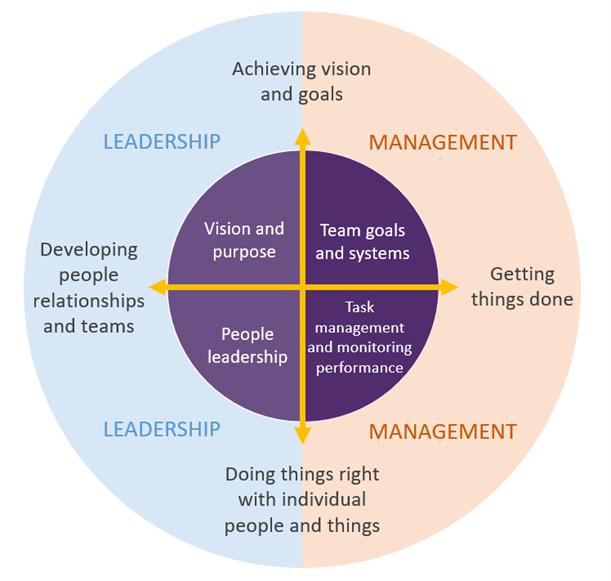Learn more about the difference between leadership and management and why you need skills in both to be a great leader.
During the early stages of our leadership training, we always pose the question, “What is the difference between Leadership and Management”? Surprisingly, it’s not uncommon to have some confused faces around the room.
We often refer to our superiors as our manager or boss, but are they in fact a leader?
Leadership can be defined as the ability to influence others to achieve their goals and contribute to the growth and improvement of a team or business.
Being a leader takes courage and requires a diverse array of interpersonal skills. We have all met an exceptional leader at some point in our lives. You know when you are in the presence of one. They are effective communicators, delegators, and influencers. They are are empathetic, adaptable, and self-aware. Exceptional leaders are the ones that allow their teams to take the credit. When things go wrong, they are out the front leading, protecting their teams, and taking responsibility.
Kouzes and Posner (2007) listed the following effective leadership behaviours:
- Models the way;
- Inspires a shared vision;
- Challenges the process seeking learning and improvement;
- Enables others to act willingly in support of the teams or business’ values, vision and mission; and
- Constantly encouraging by recognising contribution and achievement.
Leading is more about developing people, relationships, and teams. It is setting a clear direction and influencing people to follow that direction.
Management relates to getting things done and ensuring that the required tasks are completed to the right standard and in accordance with deadlines.
Excellent Management covers these common areas:
- Planning (Goals, Strategies, Determining the required resources, considering time frames)
- Leading (leading by example, resolving conflicts, motivating, open communication)
- Organising (communicating policies, coordination, delegation)
- Controlling (monitoring, evaluating, supporting, continuous improvement)
There is a difference between Leadership and Management skills. However, to be an excellent leader, you need both Leadership and Management skills. Check out our Leadership and Management model below to see the importance of both. Which area are you strong in and what areas need improvement?
For more information about our customised leadership development programs, express your interest here.





